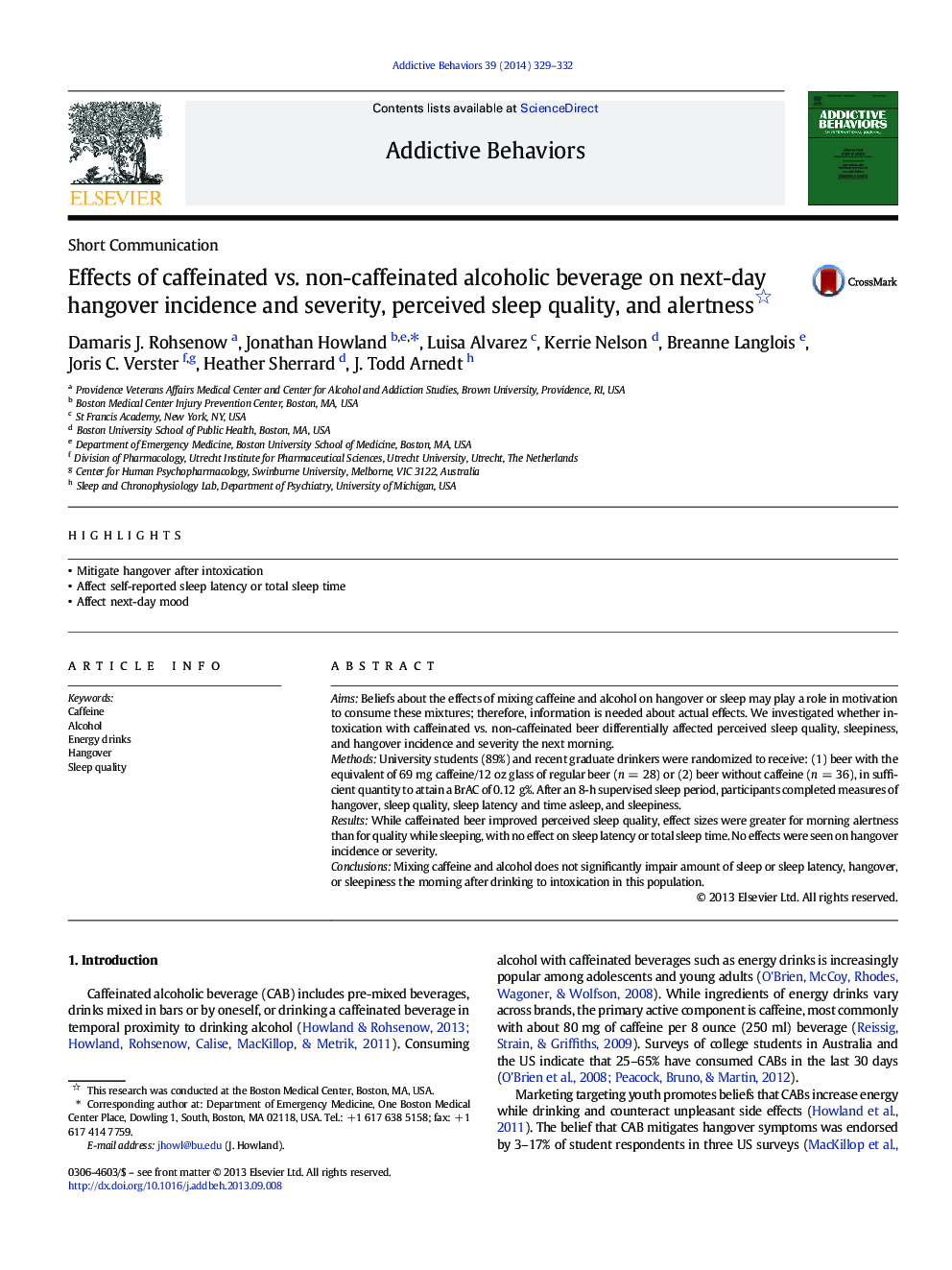| کد مقاله | کد نشریه | سال انتشار | مقاله انگلیسی | نسخه تمام متن |
|---|---|---|---|---|
| 899013 | 915352 | 2014 | 4 صفحه PDF | دانلود رایگان |
• Mitigate hangover after intoxication
• Affect self-reported sleep latency or total sleep time
• Affect next-day mood
AimsBeliefs about the effects of mixing caffeine and alcohol on hangover or sleep may play a role in motivation to consume these mixtures; therefore, information is needed about actual effects. We investigated whether intoxication with caffeinated vs. non-caffeinated beer differentially affected perceived sleep quality, sleepiness, and hangover incidence and severity the next morning.MethodsUniversity students (89%) and recent graduate drinkers were randomized to receive: (1) beer with the equivalent of 69 mg caffeine/12 oz glass of regular beer (n = 28) or (2) beer without caffeine (n = 36), in sufficient quantity to attain a BrAC of 0.12 g%. After an 8-h supervised sleep period, participants completed measures of hangover, sleep quality, sleep latency and time asleep, and sleepiness.ResultsWhile caffeinated beer improved perceived sleep quality, effect sizes were greater for morning alertness than for quality while sleeping, with no effect on sleep latency or total sleep time. No effects were seen on hangover incidence or severity.ConclusionsMixing caffeine and alcohol does not significantly impair amount of sleep or sleep latency, hangover, or sleepiness the morning after drinking to intoxication in this population.
Journal: Addictive Behaviors - Volume 39, Issue 1, January 2014, Pages 329–332
